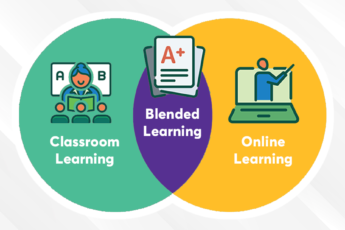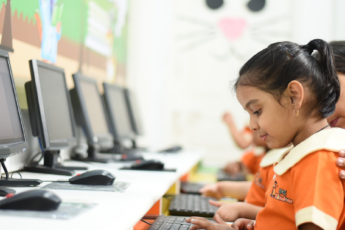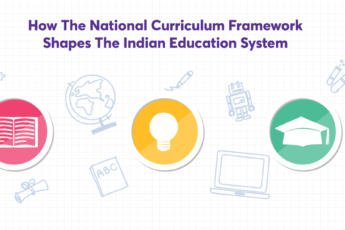Is Homeschooling A Viable Learning Option?

Homeschooling, often seen as a non-traditional method of learning, has gained much popularity in recent times. The prevailing lockdown and shuttering of schools had made more people impart education to their kids at home, causing a rethink of the traditional ways we look at education.
Although homeschooling is not as widespread as traditional schooling in India, a growing number of parents prefer homeschooling to regular schooling. There are some success stories to back it up. Sahal Kaushik, a homeschooled 14-year-old from India, became the youngest student to pass India’s highly competitive Joint Entrance Examination (JEE) of the Indian Institute of Technology (IIT) in 2010. He ranked 33rd in India and first in Delhi. Another example would be a Mumbai-born product of homeschooling, Malvika Joshi, who was accepted to study at the Massachusetts Institute of Technology (MIT) in 2016 when she was only 17.
Here’s why homeschooling is a viable learning option.
✏️ Flexibility
Homeschooling allows children to learn at their own pace and speed, exploring different learning methods until they find what works best for them. This means that if they do not understand something straight away, they can go back and try again until they do understand it. Each student learns differently, so it makes sense to allow them to learn however best suits them through auditory, visual, tactile or kinesthetic learning styles.
Some students thrive when given structure, but others do better when allowed some leeway in their day-to-day activities, and homeschooling can be adapted to suit all these peculiarities. For instance, homework assignments and tests may not be necessary if your child learns better by doing rather than reading or hearing lectures at home.
✏️ Greater Parent-Child Interaction
Homeschooling allows parents to spend more time with their children and give them more attention. This means that parents can answer questions and help their children understand concepts at a much younger age than they would be able to if they were in public school. In addition, because the family does homeschooling, it tends to be much more enjoyable for all involved. The child does not have to wait for an answer from a teacher or wait for someone else to finish the lesson before they can move on. Instead, parents can adapt what they teach according to their child’s level.
✏️ Lower Stress Levels
Many children dislike having too many expectations placed on them at school, and this stress often prevents them from performing well academically. By giving your child freedom in their education, you allow them to learn without pressure — which is sometimes the only way for them to succeed! You may also find that other students who have been pushed too hard may resent your child’s lack of pressure and try bullying them because of it. Homeschooling avoids this altogether and lets your child thrive better.
While there are a few avid supporters of this up-and-coming concept, most people are still sceptical about it. If homeschooling were recognized as a mainstream option, it might not be able to be widely used in India, especially among children that populate rural areas. Without any accountability for the education of these children, their education will be hampered.
But every cloud has a dark lining too, and so too does homeschooling have its downsides.
📚 Inconsistency
One disadvantage is that homeschooling can be inconsistent in its approach, as there can be no set lesson plans or schedules. This can mean that your child may miss out on some valuable parts of their education if they only get one lesson a day, whereas a child who goes to a school will get the same lesson every day until they graduate high school.
📚 Lack of Socialization
Homeschooled children aren’t exposed to the same level of social interaction as their peers who attend school. They don’t have after-school activities or sports teams, for example, and if they don’t have siblings, they may not have another child to play with regularly. Some homeschooled kids join clubs or participate in community programs, so that they can interact with others their age — but it’s not the same as having someone in class every day throughout the school year.
📚 Life Balance
If you’re planning on homeschooling full-time, there will be no breaks from work or school. You will need to ensure that your home is equipped with everything needed for school, including desks and bookshelves. If you’re planning on homeschooling part-time, finding time in your schedule for the extra work involved in teaching your children at home can be challenging.
📚 Lack of Quality Education
You have no control over the quality of teaching your child receives. There is no official regulation of home educators in India, so there is no way of ensuring that they meet any minimum standards. Some parents may not be qualified to teach their own children. You will not know if you are getting good or bad instruction until your child’s grades start coming in, but it could be too late to do anything about it by then.
In a country like India, where there are so many challenges in access to education, a school provides an opportunity for an education that might not be available otherwise. This can be especially important for girls and children from underprivileged backgrounds.
📚 Lack of Guidance
Home educators may have difficulty finding support when they feel overwhelmed by the task of teaching their children. If home educators are not teaching in a formal setting, they do not have access to resources such as lesson plans and other materials that could help them improve their teaching skills. This can make it difficult for home educators to evaluate their performance and develop effective strategies for improving it over time.
The Bottom Line
Despite the potential drawbacks, homeschooling is a growing form of education among parents. Families can educate their children at home using any type of curriculum that best suits their child’s education needs, allowing them to be challenged and have an individualized learning experience. Whether a family decides to homeschool or not, parents need to understand that the decision to homeschool their child should be carefully considered.
Square Panda’s comprehensive programs aim to nurture the entire education ecosystem, from teachers to students, parents, administrators, and more, by empowering them with the tools and knowledge they need to realise their learning objectives.
To know more, visit ecce.squarepanda.in




Leave a Comment